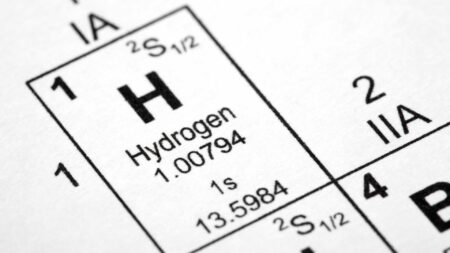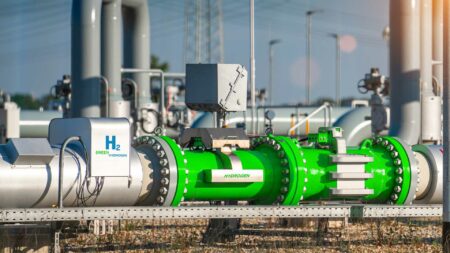When it comes to turning, trains and automobiles differ significantly. While cars have blinking turn signal levers to indicate left or right turns, trains lack such a feature.
Trains rely on a switch point mechanism to control their movement in the desired direction. This mode of operation is similar to the function of a catalyst in hydrogen fuel cells, selectively triggering chemical reactions and preventing corrosion.
A research team at the Pohang University of Science and Technology (POSTECH) in South Korea, led by Professor Yong-Tae Kim and Ph.D. candidate Sang-Hoon You, has made a breakthrough in developing a selective catalyst that effectively prevents corrosion in fuel cells used for hydrogen-powered vehicles. By tailoring the hydrogen oxidation reaction to match the hydrogen concentration in the fuel cell, the team successfully hindered fuel cell corrosion. The findings of their study were published in ACS Energy Letters, a prestigious energy journal.
Fuel cells face durability challenges, particularly degradation in the cathode catalyst caused by repeated start-up and shut-down events in automobiles. Hydrogen-powered vehicles experience cycles of start-up and shut-down, where the hydrogen concentration temporarily decreases when the vehicle is turned off or started. During these periods, the mix of external air with hydrogen inside the fuel cell triggers an unintended oxygen reduction reaction in the anode, leading to potential jumps and carbon corrosion in the cathode.
To address this issue, the research team developed a catalyst called Pt/TiO2, consisting of platinum (Pt) deposited on titanium dioxide (TiO2). This catalyst effectively inhibits corrosion in fuel cells used in hydrogen-powered vehicles. The performance of the catalyst is attributed to the strong interaction between titanium dioxide and platinum, as well as the hydrogen spillover effect that modifies the surface conductivity of the material based on the hydrogen concentration.
When a vehicle undergoes sudden stops or starts, the hydrogen concentration in the fuel cell decreases, causing the expansion of titanium dioxide onto platinum. This expansion buries the platinum beneath the surface of the catalyst, turning it into an insulator due to the low conductivity of titanium dioxide. This insulating effect prevents unwanted oxygen reduction and potential jumps in the cathode.
Conversely, during normal vehicle operation with a high hydrogen concentration, the highly conductive platinum is exposed on the catalyst’s surface. This exposure promotes hydrogen mobility and enhances current flow through the hydrogen oxidation reaction.
Comparative simulation tests between the newly developed catalyst and conventional catalysts were conducted, and the results showed that fuel cells utilizing the Pt/TiO2 catalyst exhibited three times higher durability than traditional fuel cells. This breakthrough demonstrates the successful increase in fuel cell durability by employing a selective oxygen reduction reaction and a hydrogen oxidation reaction based on the hydrogen concentration.
The research was supported by the Future Material Discovery Program, the Hydrogen Energy Innovative Technology Development Project, and the Mid-career Researcher Program of the National Research Foundation of Korea.
This research has the potential to address the durability challenges faced by fuel cells in hydrogen-powered vehicles, ultimately boosting the position of Korean hydrogen-fueled automobiles in the next-generation mobility industry.








